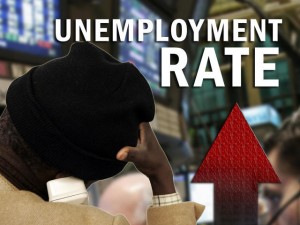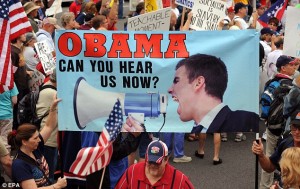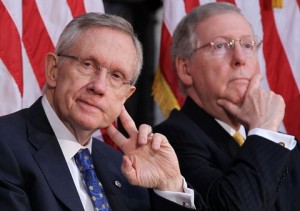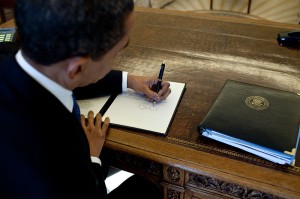 I, like many of you, probably spent more time than I really wanted watching political “leaders” in Washington free-fall to a decision on our nation’s debt. As I listened to the partisan excuses, whines and outright misrepresentation of what triggers a “default,” it occurred to me that all of the drama and general posturing by both Democrats and Republicans over raising the nation’s debt ceiling could have been avoided.
I, like many of you, probably spent more time than I really wanted watching political “leaders” in Washington free-fall to a decision on our nation’s debt. As I listened to the partisan excuses, whines and outright misrepresentation of what triggers a “default,” it occurred to me that all of the drama and general posturing by both Democrats and Republicans over raising the nation’s debt ceiling could have been avoided.
When asked on Dec. 8, 2010, whether he and the other Democrats would raise the debt ceiling, Senate Majority Leader Harry Reid responded, “Let the Republicans have some buy-in on the debt. They’re going to have a majority in the House. I don’t think it should be [done] when we have a heavily Democratic Senate, heavily Democratic House and a Democratic president.”
So as I watched members of Congress, especially Sen. Reid, looking sullen and complaining about the Tea Party caucus in the House and the “intransigence of Republicans” overall throughout the debt-ceiling talks, I thought back to that Dec. 8 interview and wondered what we would be talking about right now if the Democrat majorities in the House and Senate (under the leadership of the White House) had passed an increase in the debt ceiling in December. Perhaps we’d be talking about jobs?
It is no wonder, then, that this proud nation and its hardworking citizens found themselves on the brink of financial default and bankruptcy because some in Washington would rather play “gotcha” politics with our problems than solve them.
A Federal Fiscal Crisis
And yet we can no longer afford to deny what we already know: Federal spending has spun out of control, surging 47 percent between 2001 and 2008, with spending increasing 9.1 percent (or $249 billion) in 2008 (the last year of President George Bush’s term) and now reaching a whopping 30 percent of the gross domestic product after the first two years of the Obama administration. Annual entitlement-program spending accounts for 54 percent of the nation’s budget, and these fixed costs have soared by 6.4 percent since 2000.
Then there’s our staggering and growing debt. On Inauguration Day 2001, the national debt stood at $5.727 trillion. At the end of President Bush’s eight years and on the day President Obama took office, our nation owed $10.626 trillion (an 86 percent increase, or $4.9 trillion). Today, in just 30 short months, our nation is in the red for $14.585 trillion (a 40 percent increase, or $3.959 trillion).
It is incredible that the interest payments alone will climb to a record $800 billion a year by the end of this decade. At the same time, the rate at which individuals are able to save has decreased, while each person’s portion of our nation’s debt has increased from $20,050 (the 2001 average) to $46,678 (and yes, that means your 2-year-old owes her Uncle Sam $50,000 before she gets to preschool).
 Of course, our fiscal woes don’t get any better when you consider that unemployment is not just a drain on the economy but also saps the very life out of our dreams for a better future. While jobs are being created, they are largely found in the government sector.
Of course, our fiscal woes don’t get any better when you consider that unemployment is not just a drain on the economy but also saps the very life out of our dreams for a better future. While jobs are being created, they are largely found in the government sector.
Now, it is true that work is work, but our economy is not built that way. The root of America’s success has always sprung out of the hard labor of its entrepreneurs — the men and women who risk it all on a dream. Government doesn’t do that; government can’t do that, because as we’ve seen from both budget and now debt-ceiling negotiations, the institutions of government are not in the business of taking risks. Consequently, a job created by a small business is more than a job; it is also an investment by that business in the community of the employee.
So why does all of this matter in the debate over the debt? It matters because it speaks to whether our leaders are truly capable of confronting the tough choices and making the even tougher decisions before us. I don’t think they are ready yet.
What We the People Need to Do
However, under the increasing weight of crippling unemployment, high gas prices and unacceptable home foreclosures, “We the People” also have a little growing up to do when it comes to solving our fiscal problems.
Too often we send conflicting signals to policymakers, on the one hand demanding that they shut down programs, stop the spending and cut taxes. But then, on the other hand, we say, “Don’t end my favorite program,” “We need to spend more money on [fill in your favorite government program here]” and “It’s OK to raise taxes on ‘them,’ as long as it’s not ‘us’.”
Moreover, when leaders finally find the nerve to take the steps necessary to make the hard fiscal choices, we immediately play the zero-sum game that says you can’t be a responsible steward of the people’s money while meeting the basic needs of those most in need of help. Baloney! Being a responsible steward of our tax dollars is the only way to effectively meet those basic needs.
My point is, in order to begin to turn the corner on the morass we seem to have gotten ourselves into, you and I have to answer some fundamental questions: What price are we prepared to pay for a strong national defense and for better schools? How much are we willing to spend for our children’s health care and for secure national borders? What amount of funding and which programs are we prepared to cut in order to get our financial house in order?
Notice that I pose these questions not as either-or choices but rather as complementary opportunities. But then again, maybe we have already decided that the price, whatever it is, is too high. If so, get used to the new normal.
What Our Representatives Owe Us
 The way I see it, when citizens exercise their voices — as our Tea Party friends did in 2010, and our progressive neighbors did in Wisconsin earlier this year — it is not just refreshing; it is also vitally important to the longevity of our republic! But it shouldn’t take ticked-off citizens to get those we elect to exercise their duties responsibly — especially during times like these.
The way I see it, when citizens exercise their voices — as our Tea Party friends did in 2010, and our progressive neighbors did in Wisconsin earlier this year — it is not just refreshing; it is also vitally important to the longevity of our republic! But it shouldn’t take ticked-off citizens to get those we elect to exercise their duties responsibly — especially during times like these.
Those we send to Congress and our state legislatures must be, at all times, the honest brokers on our behalf. They must be fearless in enacting policies that encourage greater economic development and growth. They must be visionary in their efforts to foster a climate that promotes job creation, while at the same time remaining responsive to the welfare of those often left behind as growth takes hold.
But above all else, they must be honest about the situation we are in and the sometimes narrow and painful choices before us. And we must be open to hearing the truth about what it will take to recover.
Beyond Winners and Losers
This brings me back to that theater of the absurd to which we’ve had front-row seats these past few days (the sad part is, we can’t even ask for our money back because the players have already spent it).
After waiting to exhale for more than three months, the president, the House and the Senate finally agreed to terms, and the measure passed Congress. As the Washington Post noted, “[t]he agreement brings to an end the self-created crisis that has consumed Washington, rattled Wall Street, and shaken confidence in the American political system at home and abroad.”
President Obama is signing into law the work of our esteemed legislators — calling for a series of cuts and caps amounting to $2.4 trillion, a 12-member congressional committee (not another one) to identify more cuts, entitlement reforms and tax changes by the end of this year, and a vote (at some point) on a balanced-budget amendment to the Constitution. And thus our nation’s debt limit is being raised — in two stages.
This means that more tough choices lie ahead, but that hasn’t stopped some around town from making grand declarations about what this all means and announcing with great bravado the “winners and losers.” (This is Washington’s way of patting some on the back and slapping others on the butt.) But the only losers I see in this mess have been the American workers who are still unemployed.
In every crisis, there is opportunity; and in every opportunity there is the recognition that we the American people are at our strongest when we are free to pursue those opportunities and to shape our destinies. Our current financial and economic crisis dictates that every American should concern him- or herself with preserving our freedoms: freedom to invest as we see fit; freedom to save to the best of our abilities; freedom to spend within our means for ourselves and the greater good; and most of all, freedom to express what we want — indeed, demand — from our government. As President Ronald Reagan once warned, “Freedom is not something to be secured in any one moment of time. We must struggle to preserve it every day.”
That struggle, along with the choices we still have to make, will determine the safety of our nation and its citizens, our prospects for continued and enhanced economic prosperity, our relations with other nations and perhaps the very fate of our planet.
But first, let’s pay our bills.
(Cross-posted, with permission of the author, from “The Root”)











Leave a Reply